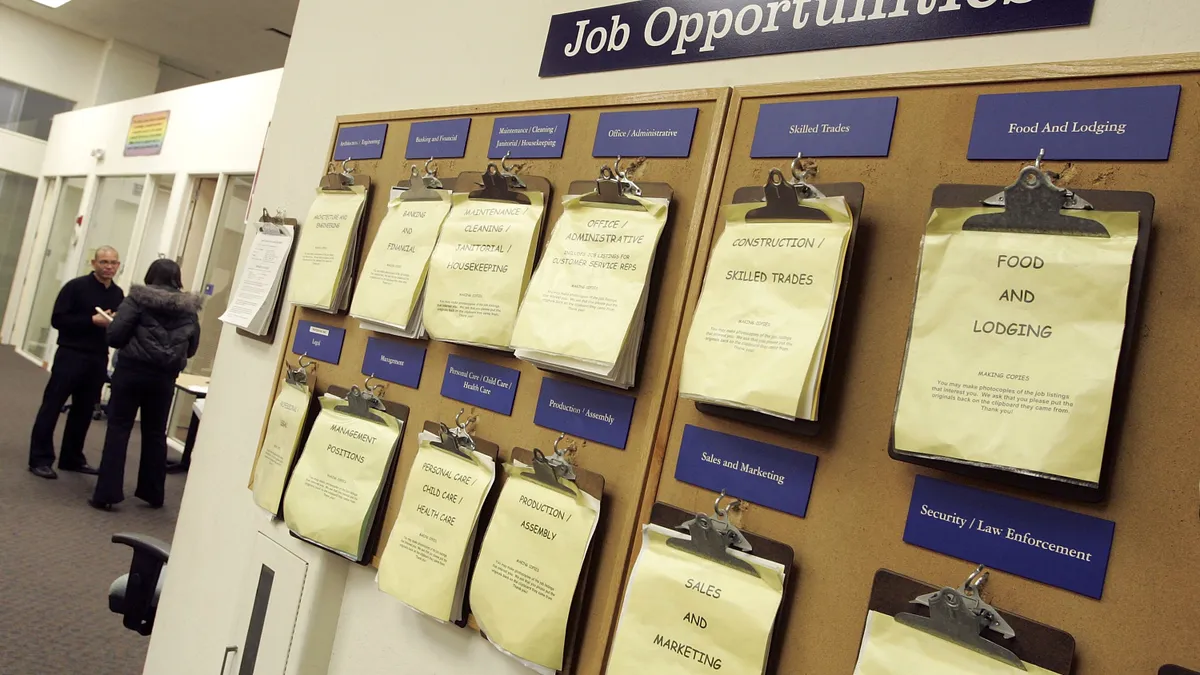During the first quarter, 44% of prospective job candidates said they received multiple job offers during their most recent hiring process, dropping from 51% in the first quarter of 2024 and 72% in the first quarter of 2023, according to a June 16 report from Gartner.
In addition, 35% of candidates backed out after accepting a job offer during the first quarter, compared to 48% in 2024.
“We are seeing signs of a softening labor market, with fewer candidates getting multiple offers or backing out after accepting a job,” said Caroline Ogawa, director of research in the Gartner HR practice. “Even with candidates seeing less opportunity in the market, organizations are still struggling to attract talent, as candidates get more selective about the jobs they pursue.”
In a survey of nearly 3,000 job candidates, 53% said higher compensation was their main factor when accepting an offer. This increased 11 percentage points from the first quarter of 2024.
After that, candidates said they prioritized more opportunities for career growth (47%), work-life balance (45%), better working conditions (39%) and opportunities to learn new skills (39%). These factors were more important than better healthcare (22%), paid time off (10%) and parental leave (6%).
In another Gartner survey of more than 100 HR leaders, 61% of U.S. private sector HR leaders said they anticipate increased competition for talent due to federal tariff policies, especially when it comes to front-line talent.
“As organizations continue to navigate through the unpredictable business environment, HR leaders must challenge assumptions about how labor market competitiveness tracks with economic cycles and pay close attention to actual candidate behavior,” said Dione Love, vice president of advisory in the Gartner HR practice.
Due to a tough job market, 10% of job seekers — including 20% of Generation Z candidates — said they’ve lied on their resume, according to a report from AI Resume Builder. Among those who lied, 76% said they received a job offer and 81% said the lie helped them get the job, yet only 21% said they regret the lie.
As worker bargaining power weakens, employees seem willing to make trade-offs for an offer, according to a Randstad report. Workers said they value employability, time autonomy and well-being and would give up a higher salary and remote work in exchange, the report found.
To avoid formal layoffs in 2025, 53% of companies plan to “quiet fire” employees by cutting benefits, increasing workloads and mandating more office time, according to a report from Resume Templates. Companies said they’re hoping to avoid public layoffs, bad press and severance costs, although 9 in 10 employers that started quiet firing said it has reduced morale.















